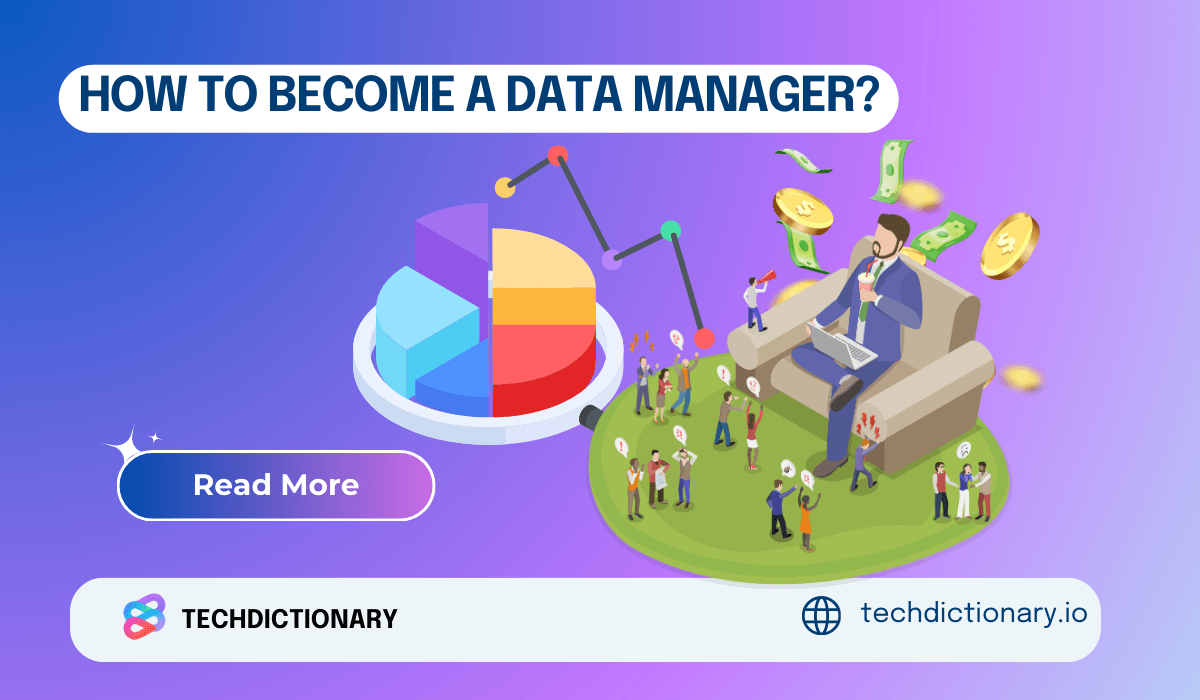
Several roles are pertinent to data management, including data manager, data analyst, and data administrator. Let’s take a look at what these roles entail, as well as the skills, education, and certifications you’ll likely need to land a job in data management.
As more companies become genuinely data-driven, the need for data managers becomes ever more crucial — helping companies analyze everything at hand to improve decision-making.
Data management is the collection, storage, and securing of data to enable organizations to use it efficiently and cost-effectively. As well as guiding business decisions, supporting day-to-day operations, and meeting regulatory requirements is critical.
The field is not limited to being a data manager, with excellent opportunities out there as a data analyst or data administrator.
Let’s look at what these roles entail and the skills, education, and certifications you’ll likely need to land a job in data management.
Data managers are senior administrators who maintain their companies’ data according to established procedures and policies. These professionals supervise networks and data systems to ensure everything is appropriately organized, stored, and secured.
Data managers also develop and implement effective strategies and assess how data systems are performing. Additionally, they ensure that the data management processes of their organizations adhere to regulatory requirements. Data managers also establish rules for data sharing and troubleshoot any data-related issues.
An average data manager salary is around $90,000 a year in the U.S., with a potential top income of about $160,000, according to Indeed.
Employers often require that data managers possess bachelor’s degrees in computer engineering, computer science, business administration, or statistics.
Some organizations may recruit individuals with master’s degrees in business administration, including majors in information systems or technology. These degree programs include such subjects as statistical quality control, business modeling via spreadsheets, and database principles.
Even if a potential employer doesn’t require you to hold a master’s degree in business administration to work as a data manager, this advanced degree can help you acquire the skills and business knowledge that relate to this role. And that may give you a leg up on your competition.
To be a data manager, you need excellent analytical capabilities and an extensive understanding of database concepts and designs. You must also know Python, SQL, Java, JavaScript, Perl, and other related programming languages. In addition to possessing these technical skills, you must have good interpersonal and communication skills.
Earning certifications indicates to potential employers that you’re an expert in data management and dedicated to the profession. Here are a couple of certificates for you to consider:
Certified Analytics Professional (CAP): Offered by the Institute for Operations Research and the Management Sciences, this certification verifies that you have the technical and soft skills organizations seek in almost every industry.
The CAP certification is appropriate for analytics professionals, including data managers working with data-driven insights and analytics. You’re eligible to earn this certification if you have a bachelor’s degree and five years of experience working in a related area, a master’s degree and three years of experience in a related area, or seven years of experience with any degree in an unrelated analytics area.
Certified Data Management Professionals (CDMP): This certification, recognized worldwide, is offered by the nonprofit DAMA International. Earning this certification can help boost your career and show potential employers that you’re qualified in data management. DAMA offers four levels of certification: CDMP Associate, CDMP Practitioner, CDMP Master, and CDMP Fellow.
Data analysts collect, process, and analyze data to uncover useful information and draw conclusions so business leaders can make informed decisions. Data analysts who work with large data sets typically use programming languages, software, and analytic and statistical tools to interpret and visualize data from multiple sources.
Your responsibilities as a data analyst include working with team members to collect and analyze data, collaborating with executives to identify ways to improve the business, creating reports based on their findings and recommendations, establishing key performance indicators to measure how effective the business decisions are, and working with other analysts and colleagues to process the data.
An average data analyst’s salary in the U.S. is around $75,000, with a high of around $120,000.
Most employers seek data analyst candidates with at least bachelor’s degrees in computer science, statistics, economics, math, or a related field. However, some organizations look for individuals who have master’s degrees in data analytics or a related field.
To be a data analyst, you must excel at calculus, probability and statistics, linear algebra, and Excel. You also need to know programming languages, including Python, SQL, R, and NoSQL. In addition, you have to understand how to clean, prepare, and visualize data.
Employers also want you to have good workplace skills, such as knowledge of their particular industries and good communication and problem-solving skills.
Employers may consider you for more advanced positions if you have any certifications, such as the Certified Analytics Professional (as above) or Microsoft Certified: Power BI Data Analyst Associate.
The Microsoft Certified: Power BI Data Analyst Associate certification validates that you can model, visualize, and analyze data using Power BI so you can share insights from the data.
You should also have a basic understanding of on-premises and cloud data repositories and processes. By earning this certification, you’ll be able to create and build scalable data models, clean and transform data, and use data visualizations to help your organization make better business decisions and operate more efficiently.
Database administrators manage and maintain their organizations’ databases, ensuring they’re secure, efficient, and available to meet the needs of the business.
These professionals work with database developers and others to establish database frameworks that meet the requirements of their companies.
Database admins also install and configure database management systems, including Oracle, Microsoft SQL Server, MySQL, and others, depending on the needs of their organizations. As a database admin, your responsibilities will also include developing and implementing backup and recovery strategies to ensure the business can restore the data if there’s a system failure or other disaster.
An average database administrator’s salary in the U.S. is $95,000, with an upper limit of around $140,000.
You must have a bachelor’s degree in information science or computer science to be considered for even the most entry-level database admin positions. And if you’re a candidate at a large enterprise, you might need a master’s degree in information technology or database administration.
If you want to be a database administrator, you need to have advanced technical skills and extensive knowledge of database management systems (DBMS) and data systems. You must also have hands-on experience in programming languages, such as R, Python, PHP, C#, and SQL, along with experience with DBMS platforms, including Oracle, Microsoft SQL Server, MySQL, and others.
Earning certifications can help set you apart from other candidates and validate your proficiency in database administration. For example, the CompTIA DataSys+, a vendor-neutral data management certification, covers everything you need to know to deploy, manage, and maintain systems in a secure environment.
The Microsoft Certified: Azure Database Administrator Associate certification is geared toward IT professionals with strong skills in building databases specifically designed to support workloads created with Azure SQL services and Microsoft SQL Server on-premises.
The significance of data management in today’s business operations is increasing. As such, organizations in virtually every industry are looking for professionals who can turn raw data into actionable insights so business leaders can make informed decisions.
As technology continues to evolve, the data management sector will continue to grow and introduce numerous new opportunities for job hunters.

